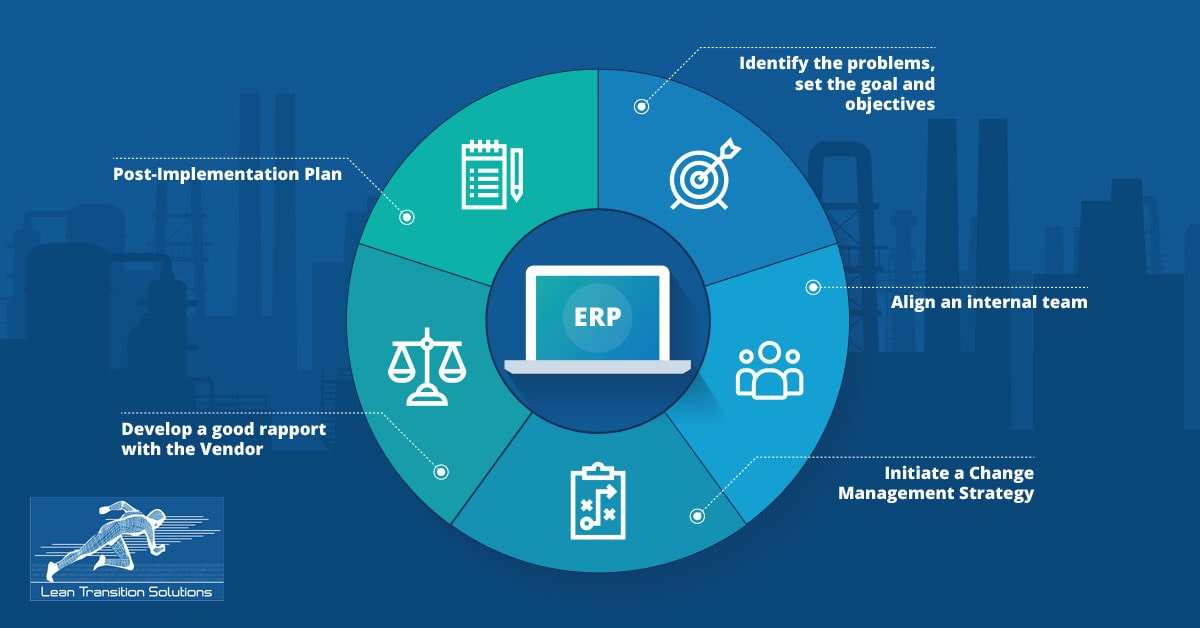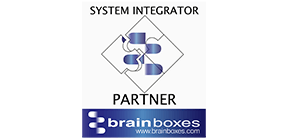Is your organisation all set for ERP Implementation?

ERP systems have always proven to be an added advantage for the working and business processes of an organisation. Implementing an ERP system means making an important investment in the future of your organisation. Change from a traditional system to a more centralised system can be challenging when planned before implementing the transition becomes smooth. Implementing ERP software successfully is not an easy task if you don’t have a proper understanding of the necessity for an ERP system in your organisation. You have to make sure that your business is ready to embrace the change.
Here are a few steps to help prepare your business for a successful ERP system implementation.
1. Identify the problems, set the goal and objectives
ERP systems can find solutions to many of your problems. Therefore, before you implement an ERP project or even select an ERP vendor, you should have a detailed assessment of your organisation, so that you will have a better understanding of the scope of having an ERP system within the organisation. It will help you understand whether you are ready for a change and what change needs to be made.
Once you have identified the problem you can look for a solution that encompasses all your requirements. Bespoke solutions will enable organisations to achieve their preset goals and objectives. Therefore, it’s essential to have a thorough idea regarding ‘Why do you need a new ERP system’?
2. Align an internal team
Develop an internal team to verify the process of implementing ERP. The team makes sure that the implementation process aligns with the goals and objectives of the organisation and documents each finding. This will enable the organisation to have a perfect strategy to implement the new system. Choose the best team possible. Give them the authority to ensure that the project is completed as per expectations.
3. Initiate a Change Management Strategy
Don’t fear change, embrace it. ERP implementation can bring extensive change in your organisation. Employees who were following daily routines for many years may not be able to accept the change easily. Sometimes, there is the fear of understanding new concepts or ideas of transformation or lack of their inability or both. These can be addressed and overcome by proper communication across the organisation. Give the necessary training for the employees to equip themselves. Employees must be prepared for a change and everyone must align and familiarise themselves with the vision and the objectives of the project. Remember the change is for one and all.
4. Develop a good rapport with the Vendor
Have a detailed discussion with your vendor regarding the implementation of the new system. They know what it takes to implement their software and the methodologies to organise the process. Develop a strong understanding of the process and fine-tune it along with your working environment, so that the transition will be smoother.
5. Post-Implementation Plan
Post-implementation, organisations might face changes and difficulty in adapting them. You might need both internal and external support. Having adequate technical support in place post-implementation can resolve any user issues quickly and prevent your teams from getting frustrated with the new system.
Start Free Trial
LEAN TRANSITION SOLUTIONS
The Old Vicarage, Pershore Road, Upton Snodsbury, Worcester, Worcestershire, WR7 4NR, United Kingdom.
Lean Transition Solution
-
Lean Industry 4.0 Solutions
- TITAN:Computerised Maintenance Management System
- Data Point:Computerised Balanced Scorecard
- Janus: Automated Shop-floor Data Capture System
- T-Card: Integrated Production Planning and Plant Level Execution System
- JDI: Maintenance Automation App
- Maximus: Integrated ERP System
- e-Contractor: Integrated In-house Contractor Management System
- Q-Point: Integrated Quality Management System
- Safety-Point: Integrated Health and Safety Management System
- Lean Assessment: Lean Audit and Assessment System
- Saisho: Lean 5S Audit and Assessment App
- Emergency Response App: To Manage Emergency Situations
-
Leadership 4.0 Solutions
- Your Career Academy(YCA): Learning and Development System
- YCA e-Learning : Management System
- MentorYou(MU): Mentoring App
- Leadership 4.0 : Leadership Transformation Program
- Lean Manufacturing Workshop
- Lean Manufacturing Consulting
- ILM Accredited Green Belt Training and Certification Program
- ILM Accredited Black Belt Training and Certification Program
- Software Development Service
- Resources
- Company
- Contact











